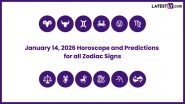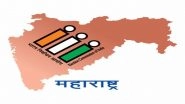Hong Kong, Sep 24 (AFP) Hong Kong banned a political party which promotes independence on Monday, a first since the city was handed back to China by Britain 21 years ago as Beijing ups pressure on any challenges to its sovereignty.
Semi-autonomous Hong Kong enjoys freedoms unseen on the mainland including freedom of expression but the space for political dissent is shrinking in the face of an increasingly assertive China under President Xi Jinping.
Police sought a ban in July on the Hong Kong National Party (HKNP), a well-known but small group with a core membership of around a dozen, which promotes the city's independence from China.
The bid was slammed by rights groups and Britain's foreign office, which said Hong Kong's rights must be respected.
On Monday, Hong Kong's security bureau announced it had upheld the police request and would ban the party under the Societies Ordinance, which stipulates groups can be prohibited in the interests of national security and public safety.
"I hereby order that the operation or continued operation of the Hong Kong National Party in Hong Kong to be prohibited," a notice from the security minister said on a government website.
HKNP leader Andy Chan said he would not immediately comment on the decision.
Activists calling for Hong Kong's independence from China emerged after mass pro-democracy rallies in 2014 failed to win reforms.
But pro-independence campaigners including Chan have since been blocked from standing for office and others disqualified from the legislature.
Leading independence activist Edward Leung was jailed for six years in June on rioting charges after clashes with police in 2016.
HKNP has lost momentum over the past two years as the government seeks to muzzle pro-independence sentiment.
However, the party was launched back into the headlines after police sought the ban, with Chan giving a high-profile talk at the city's press club which Chinese authorities demanded should be cancelled.
Chan described Beijing as Hong Kong's "colonial master" in his speech to a packed audience at the Foreign Correspondents' Club in August.
China's ministry of foreign affairs had asked the FCC to pull the talk but it refused, saying that different views should be heard in any debate.
The Hong Kong government said that while it backed freedom of speech and the press, allowing Chan to speak contravened the city's mini-constitution.
(The above story is verified and authored by Press Trust of India (PTI) staff. PTI, India’s premier news agency, employs more than 400 journalists and 500 stringers to cover almost every district and small town in India.. The views appearing in the above post do not reflect the opinions of LatestLY)













 Quickly
Quickly


